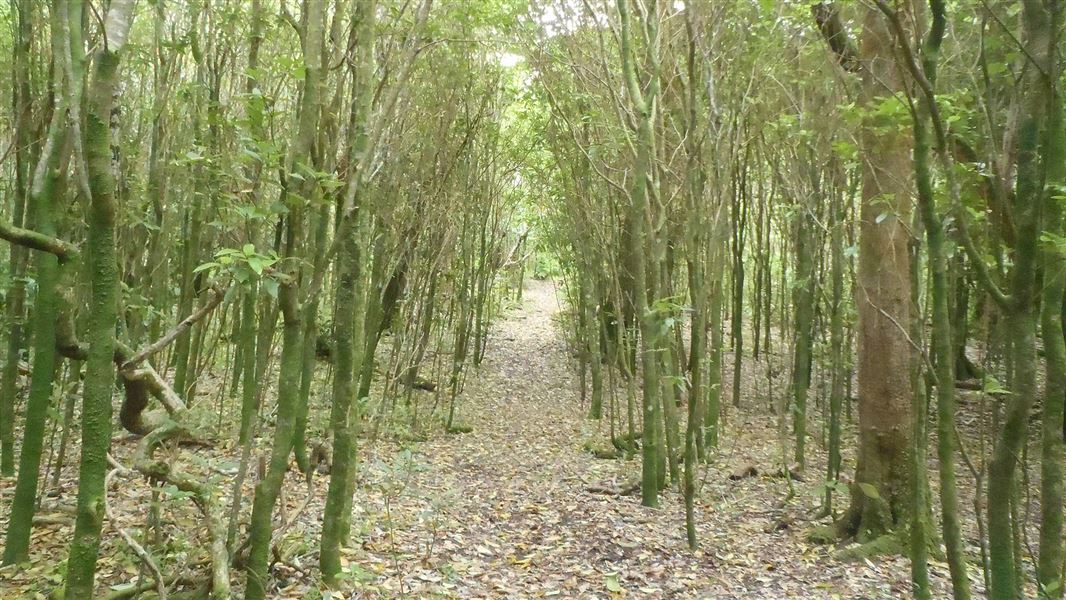Head north from Waitangi on the North Road, turn right at the signposted turn-off 6 km from Kaingaroa. The reserve is at the end of the road adjacent to the old Hāpūpū airstrip.
Visitors are limited to local whanau. Other visitors must book in with a guided tour with DOC-approved operators.
The breakdown of the rakau momori has seen a limited number remaining in Hāpūpū. Support us by respecting this site and observing the following protocols:
- Stay on the tracks which are clearly marked – don’t go off the tracks
- Do not touch the trees – this will cause damage to the bark
- Stand 2 meters away from the trees to avoid standing on the tree roots.
- Respect the site as a culturally and historically significant place.
The forest comprises mature kopi forest with an understorey of mahoe saplings.
Hundreds of years ago ancestors of the Moriori, the indigenous people of the Chatham Islands, carved images onto the trunks of living trees. A number of these carvings, or dendroglyphs, survive protected in this national historic reserve.
Traditional motifs carved onto living trees are globally very rare. Other examples exist in Australia, United States of America and Sweden.
The style and number of the dendroglyphs on the Chatham Islands are unique and are regarded as being internationally significant. Typically, most Moriori dendroglyphs depict a human form but there are also other patterns depicting fish and birds.
The exact meaning of the carvings remains unknown, but they are still very much regarded as a sacred treasure by Moriori.
Surveys of the carvings have been undertaken since early last century. The first conservation step was in 1979 when landowner J.M. Barker gifted the land to the nation.
DOC manages the reserve in partnership with the Hokotehi Moriori Trust. Many of the carvings are disappearing as disease and wind erosion take their toll on the trees.
In 2010 DOC led a groundbreaking project with the University of Otago and Chatham Island Moriori to scan the carved surfaces of the trees with a three-dimensional laser scanner to record the images for posterity. It is the first time this technology has been used to record heritage features in New Zealand.
Read about 3D laser scanning of the Chatham Island dendroglyphs.
DOC Customer Service Centre
| Phone: | 0800 275 362 |
| Email: | chathamislands@doc.govt.nz |
| Address: | Rēkohu / Wharekauri / Chatham Island Office |
